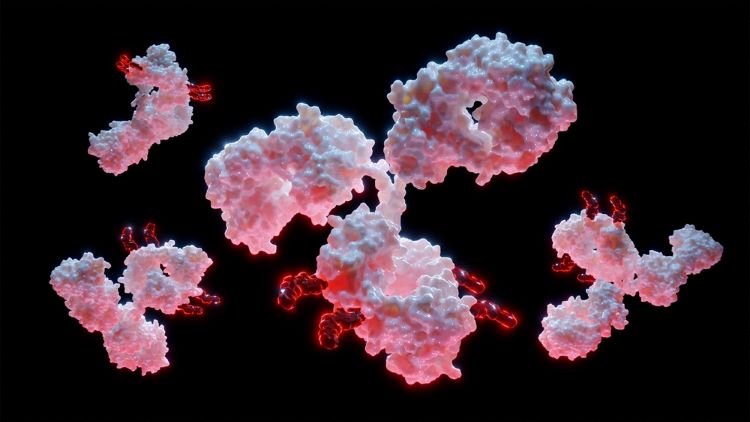Uncovering the potential of ADCs to target tumours
Posted: 18 July 2024 | Catherine Eckford (European Pharmaceutical Review), Mary Jane Hinrichs (Ipsen) | No comments yet
Antibody drug conjugates (ADCs) are set to play a pivotal role in the future of oncology, thanks to their potential to offer targeted treatments with a lower risk of side effects. Here, Mary Jane Hinrichs, Senior Vice President of Early Development at Ipsen, examines how ADCs could transform treatment options for tumours.


What are antibody-drug conjugates and why do they hold potential over other treatment modalities?
Antibody drug conjugates (ADCs) are an emerging technology adding significant value to the oncology treatment landscape. They are also increasingly the focus of R&D across the world and remain a modality that is regularly the focus of deals across the industry.1 As they can be highly targeted in their action, they could become the treatment of choice for clinicians and patients due to the reduced risk of side effects.1,2 This is especially important in forms of cancer where chemotherapy remains the main treatment option. Because ADCs offer a good way to specifically deliver an effective treatment to tumour systems, this could be an improvement on the systemic impact of chemotherapy.1,3
Aside from oncology, what other indications do ADCs hold promise to treat in the future?
ADCs have seen success in haematology but there is still a lot of untapped potential in solid tumours”
ADCs have seen success in haematology but there is still a lot of untapped potential in solid tumours. In theory, ADCs could be connected to a range of different agents to target diseases affecting different organs or systems around the body. But we have only touched on their potential in oncology and there is more to do to ensure patients with challenging forms of solid tumours can benefit from ADCs, so this is the area our teams focusing on to drive progress.
What are two of the main trends in ADC development?
[The main trend in ADC development] has been an advancement in the engineering changes related to the drug to antibody ration (DAR)”
The main change has been an advancement in the engineering changes related to the drug to antibody ration (DAR). We have learned a lot from both the approved and other investigational ADCs and we can see that a higher DAR does not always mean a better or higher efficacy.2 Alongside this, we have a greater understanding of novel payloads. These have ultimately delivered successful candidates that are providing valuable therapeutics for haematological malignancies and solid tumours.2
We have also seen bispecific ADCs as a growing class of next generation ADC with enhanced specificity and improved efficacy. This class also seem to be better tolerated across patients. The potential to target more than one tumour antigen is interesting, as are the possible advantages for the patients receiving these investigational medicines.
What are the current challenges in developing ADCs?
The research and clinical communities have not yet identified how to optimise all three components of an ADC (the antibody, payload and linker) without compromising one in favour of another.3 A promising agent may not offer the optimal stability when paired with an antibody, for example, and what works for one tumour type does not always work for another.4 A recent evaluation of the ADC landscape showed that of approximately 260 ADCs in development, there are only 11 approved. This illustrates how challenging it is to strike the perfect balance to optimise all three components and create a stable ADC that can reach and act on the target cancer.2 Sharing and discussing across the community is how we will make progress together.
Ultimately, this means that we do not yet know how to translate the potential of an ADC into a real patient impact. There are many examples of where ADCs advance through early development as a strong molecule, yet when put into clinical practice that potential does not translate into a tangible patient benefit. Preclinical data can only do so much, there is more we need to uncover and understand to unlock the potential of ADCs for people with solid tumours.
How could the recent ADC-related deals within the industry impact the sector?
To truly make progress in any sector we need to unite expertise and combine forces – across industry, clinical and academia. Recent ADC deals reinforce the potential that this modality still has to improve and extend the lives of patients around the world. If we can continue to share and work together, we push further and deliver faster for patients.
What does the future of ADCs look like? How could this impact the pharmaceutical industry as a whole?
I believe the payload is the driving force of a truly ‘next generation ADC’”
I believe the payload is the driving force of a truly ‘next generation ADC’. This is what we liked about the potential for Sutro Biopharma’s ROR1 tumour antigen ADC STRO-003 as the technology maintains stability of the payload. But we also are excited by the novel payload Exatecan, which has shown significant potential in solid tumours.
About the interviewee


References
- Fu et al. Antibody drug conjugate: the “biological missile” for targeted cancer therapy. Signal Transduct Target Ther. 2022; 7(93)
- Maecker et al. Exploration of the antibody–drug conjugate clinical landscape. Mabs.2023;15(1)
- Shastry et al. Rise of Antibody-Drug Conjugates: The Present and Future. ASCO Educational Book. 2023; 3
- Tsuchikama et al. Exploring the next generation of antibody–drug conjugates. Nat. Rev. Clin. Oncol.2024; 21 203–223
Related topics
Antibodies, Biologics, Biopharmaceuticals, Clinical Development, Clinical Trials, Drug Development, Drug Safety, Industry Insight, Production, Proteins, QA/QC, Research & Development (R&D), Technology, Therapeutics








